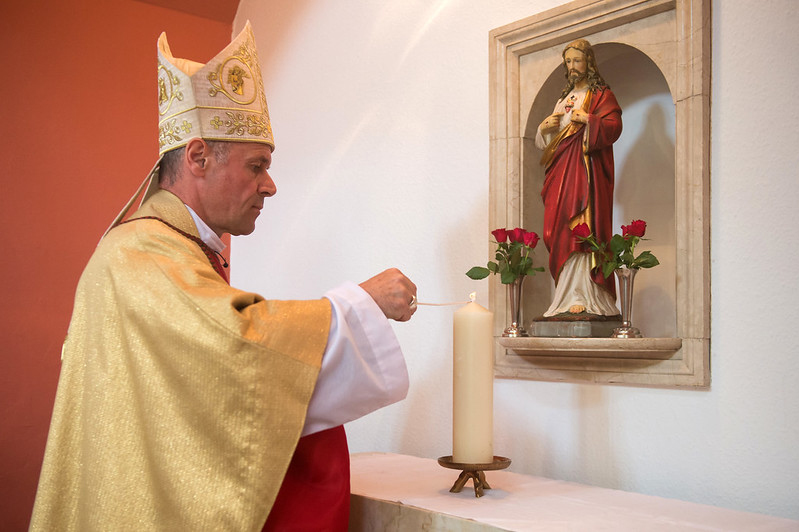WelCom May 2020:

Photo: CNA
Human value is not a measure of ‘our mental or physical capacity, our societal function, our age, our health or of any other qualitative assessment,’ said the Catholic Bishops’ Conference of England and Wales in a statement about accessing healthcare during the Covid-19 pandemic.
As at 27 April, more than 21,000 people with Covid-19 have died in British hospitals, although that figure doesn’t include those who died in nursing homes and other care facilities. More than 157,000 people in the country have tested positive for the coronavirus that causes Covid-19.
To handle the surge in patients, the UK’s National Health Service (NHS) has established seven ‘Nightingale hospitals’ in places such as arenas to provide additional intensive care beds. However, there is concern of a triage situation developing, and the UK’s National Institute for Health and Care Excellence has established guidelines for assessing patients which includes use of a Clinical Frailty Scale which gives an indication of the likelihood of a patient surviving treatment.
‘With the escalation of the coronavirus, demand on NHS resources is outstripping supply and those responsible for our care and well-being are facing challenging decisions,’ the bishops’ statement said.
‘What may well be on all of our minds is what provision will be available if I, or a loved one, is in need of treatment and life-support in these circumstances. While we would all agree that the allocation of resources must be done as fairly as possible, the criteria of fairness must be clear and shared by us all. These principles apply both morally and in the law which governs our expectations and rights on health and social care,’ the statement said.
‘A decision against offering a certain life-prolonging treatment to an individual must never be a judgement based on the worthwhileness of that person’s life, including their age or other social characteristics, but a pragmatic decision about the likelihood of him/her benefiting from the intervention given their medical condition. This principle has been upheld in case law repeatedly and the NHS Constitution itself is clear that we should deliver care and support in a way that achieves dignity and compassion for each and every person we serve,’ the bishops continued.
The bishops said people with underlying health conditions should discuss the sort of treatment they may want with their families so that good communication is possible in a crisis.
‘Each of us may be presented with clinical scenarios which are both unwelcome and distressing, yet doctors are faced with making the least-worst decisions. This approach helps us to focus on the common good. Similarly, Catholics will focus on the benefit of a particular treatment for the person taking into consideration all medical factors. This, again, helps us to focus on the common good of all and best meets the principles of justice and equality,’ the statement continued.
The bishops were alluding to the use of ventilators – often necessary in severe cases of Covid-19 – which can often be traumatic for the patient, and lead to other complications.
‘Clear communication with the sick and their loved ones is essential throughout this process, and medical staff will need to deal sensitively with those affected,’ they said.
Source: Crux